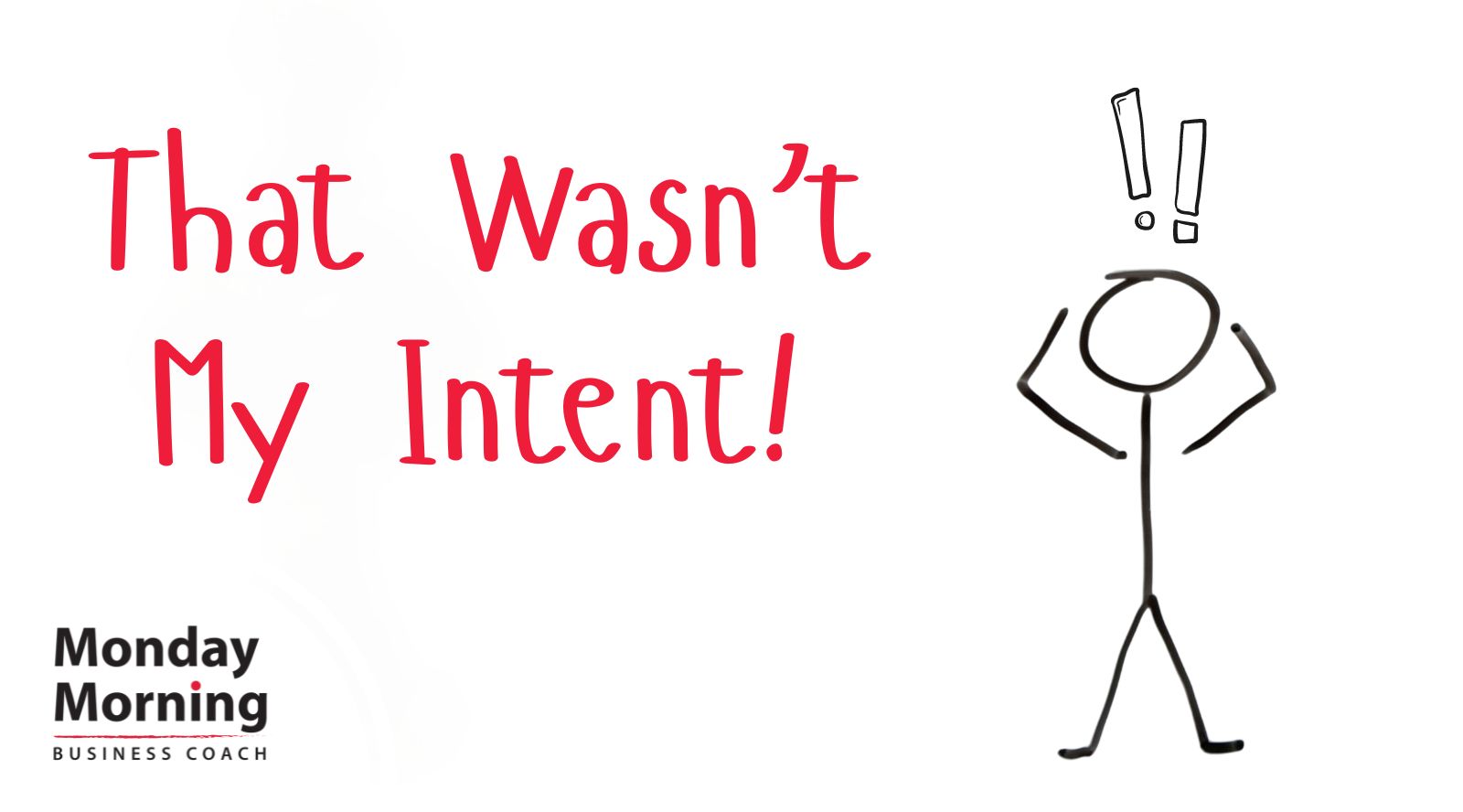Last week, we discussed the importance of leading with EQ and CQ to foster deeper relationships where people feel seen, heard, and respected.
As a reminder:
- Emotional Intelligence (EQ) is your willingness and ability to reflect on your emotions, other’s emotions, and then use that information to adjust your behavior accordingly.
- Cultural Intelligence (CQ) is similar to EQ but includes an awareness and interest in honoring different cultural beliefs, norms, and approaches, AND in learning how to act on that knowledge.
We realize though, that there may be times when what you say and how it’s experienced by others may not always be aligned. You may even think (or say), “That wasn’t my intent!”
While it may be true,
“That wasn’t my intent,” limits dialogue.
There are multiple truths in every interaction, and it’s important to be open to that reality–even when it’s hard.
When we say, “That wasn’t my intent!” we’re not offering an apology nor an expression of understanding of the other person’s experience. We’re saying our intention is more important than their experience.
“That wasn’t my intent,”
in essence, is saying that their experience isn’t valid.
We’ve all had moments when something we’ve said was received differently than it was intended. It makes sense when we’re rushing through our days, trying to be as productive as possible.
This doesn’t make you a bad person or an unskilled leader. But, if you want to keep communication lines open and be experienced as a skilled leader, it’s important to listen to the experience of those you’re communicating with and own the impact of your words.
So, what can you do?
- Instead of stopping at “That wasn’t my intent,” own your impact and get curious.
- You could say something like,“That wasn’t my intent, and I can see/hear that the impact of my statement was very different than my intent. Can you share your experience with me?”.
- Then listen. Really listen. Don’t defend.
- Thank them for sharing their experience.
When you embrace that your words may not have had the impact you intended, and then you own it and work with it, you’ll be much more effective and more deeply connected.
Doing this work can often require a certain amount of humility. Stay tuned for next week’s post where we’ll talk a bit more about the important role humility can play in being an effective leader.
As always, keep us posted on what your leadership looks like.
If you’d like support
aligning your intentions with your actions,
contact us today.

